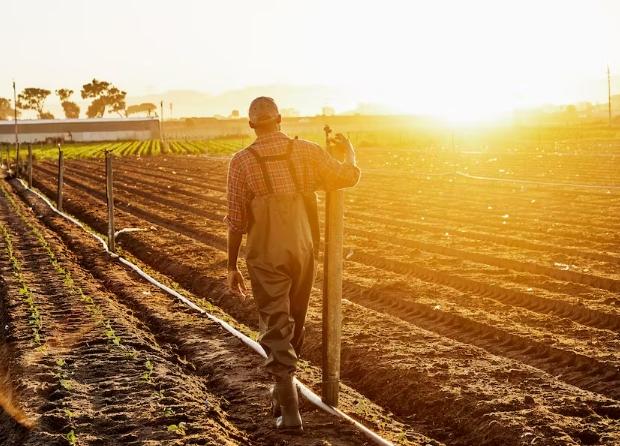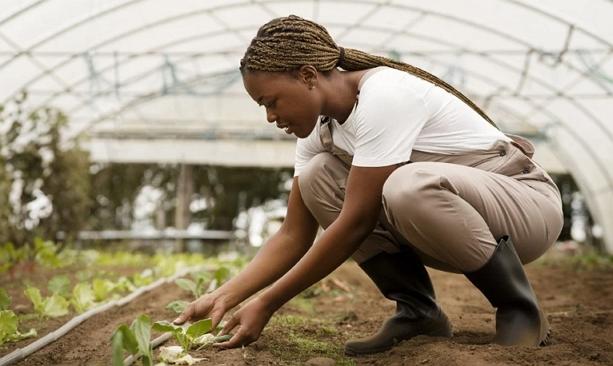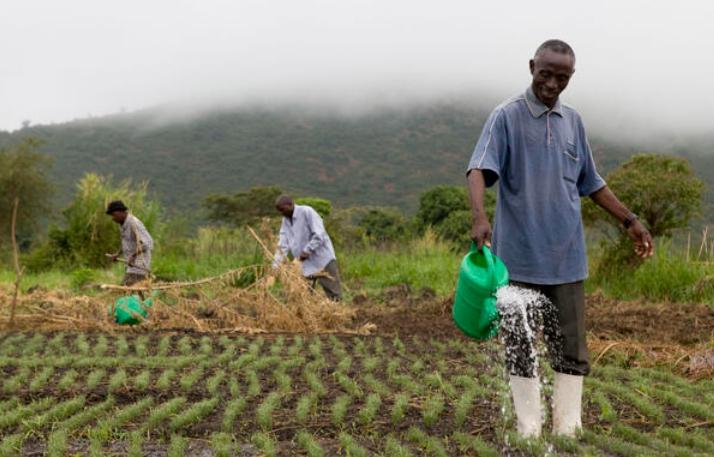
Challenges in South African Agriculture: Power Cuts and Infrastructure Issues Impact Farming and Rural Towns
NewsSouth Africa’s agricultural industry has experienced significant growth in recent years, with consecutive successful seasons since 2019/20. The sector’s gross value added showed substantial increases, expanding by 14.9% in 2020, 8.8% in 2021, and maintaining modest growth of 0.3% in 2022. This positive trend can largely be attributed to favorable weather conditions that have benefited the agricultural sector.
The ongoing season is expected to contribute to further growth in the agricultural sector, although performance may vary across different sub-sectors. Encouragingly, prospects for abundant harvests are already evident throughout the country. Additionally, the sector’s export performance is projected to be strong, particularly due to the depreciation of the rand exchange rate. The weakened currency enhances the competitiveness of South African agricultural products in the global market, potentially leading to increased export opportunities.
Despite positive growth, the agricultural sector faces obstacles that prevent it from achieving even greater success and inclusive participation of black farmers in commercial value chains. One key factor is the increasing occurrence of power cuts. The agricultural industry heavily relies on energy, particularly for crucial activities such as irrigation. Recent research conducted by the Bureau for Food and Agricultural Policy, an agriculture and food policy research group, reveals that approximately one-third of South Africa’s farming income is directly dependent on power for irrigation purposes.
However, there are additional challenges that need to be addressed. Deteriorating road conditions, crumbling water infrastructure, and increasing crime rates pose significant barriers to the effective and efficient functioning of the agricultural sector. These issues have been previously highlighted, but their severity has escalated over time. They affect not only large commercial farmers but also smaller farming enterprises. Emerging black farmers, who often have limited financial resources, are particularly impacted by these challenges.
These challenges underscore the impact of poor governance across all levels of government in South Africa. While the consequences are significant for all sectors, they are particularly pronounced in agriculture, which relies on the efficient operation of critical components such as roads, water, and power. Provincial governments and municipalities have neglected the maintenance and upgrading of infrastructure necessary to support the agricultural sector.
The long-term consequences of this neglect are expected to result in deteriorating economic conditions and reduced employment opportunities in small towns. The agricultural sector and agribusiness are vital for sustaining the economies of these rural areas. By prioritizing infrastructure development, a positive cycle can be triggered, where increased private sector investment leads to expanded economic opportunities and further stimulates growth in these regions.
Roadblocks facing farmers

A recent incident in the Eastern Cape province exemplifies the detrimental effects of inadequate road infrastructure on farmers. Dairy farmers in the Ncorha area faced significant challenges in receiving essential farm supplies such as supplements, feeds, and diesel due to the poor condition of the roads. Moreover, they encountered difficulties in transporting their produce to the market, further hindering their operations and profitability.
Ncorha, situated in the Chris Hani District Municipality of South Africa’s Eastern Cape province, is a small region that relies heavily on farming, particularly in the dairy industry. The Eastern Cape province plays a significant role in the country’s dairy production, accounting for nearly one-third of the total output.
The issue of inadequate infrastructure is not limited to the Eastern Cape alone. Rural towns in prominent agricultural provinces such as the Free State, North West, Limpopo, and KwaZulu-Natal also suffer from poorly maintained and deteriorating roads. This situation hampers the smooth functioning of agricultural activities in these regions.
Over the past few decades, there has been a significant shift in South Africa’s agricultural transportation landscape. Currently, more than two-thirds of the country’s agricultural goods are transported by roads, as the rail transport system has encountered various challenges. This marks a notable departure from the situation two decades ago, when rail played a crucial role in the transportation of agricultural produce, particularly grains. The shift in transportation methods has had implications for logistics and infrastructure planning in the agricultural sector.
Due to the inadequate road network, certain farmers have been compelled to take on the responsibility of road maintenance themselves. This added burden of maintaining the roads has prevented them from fully capitalizing on the increased agricultural output, as it results in additional operating expenses. The mismanagement of infrastructure funds by municipalities has also contributed to this problem, requiring farmers to step in and address the shortcomings. Numerous reports from the Auditor General have highlighted the details of such instances, shedding light on the issue at hand.
Water scarcity and the maintenance of water infrastructure, including dams and purification systems, have consistently been identified as significant challenges by agribusinesses and farmers. In certain towns, agribusinesses have had to assume the responsibility of maintaining water infrastructure due to the lack of action from municipalities. This diversion of financial and human resources from businesses to public services further exacerbates the strain on businesses and highlights the failure of municipalities to fulfill their obligations in this regard.
Agribusinesses and farmers are increasingly grappling with the challenges of corruption and crime in rural South Africa. The prevalence of lawlessness has compelled commercial farming businesses to enhance their security measures, incurring additional costs. Theft of crops and livestock poses a significant burden on all farmers, particularly impacting new entrants who may lack the financial means to invest in robust security and advanced technologies. This diversion of resources towards security measures not only hampers productivity but also underscores the failure of the government to address the underlying issues, forcing farmers to compensate for these shortcomings.
Why strong agricultural sector matters

South Africa is grappling with a significant unemployment rate, reaching nearly 33% in the first quarter of 2023. The impact of this economic downturn is particularly felt in rural areas, exacerbating the challenges faced by local communities. Addressing the unemployment crisis necessitates the optimal performance of all sectors, with a particular focus on the primary sectors that can provide employment opportunities even for individuals with limited skills. Agriculture, along with agribusiness and agro-processing, emerges as a promising sector offering a diverse range of job prospects.
The successful implementation of public services such as roads, water, and electricity is crucial for the growth and sustainability of the agricultural sector. This, in turn, relies on the competence and effectiveness of provincial governments and municipalities. To address these challenges and propel the agricultural sector forward, the recently introduced Agriculture and Agro-processing Master Plan offers tangible measures. Aligned with Chapter Six of the National Development Plan, this plan outlines a strategic vision for the future development of the agricultural sector. By implementing these practical steps, the sector can make significant progress towards its goals.
The deficiencies in provincial government and municipalities are impeding the government’s efforts to enhance agricultural productivity and address inefficiencies within the Department of Agriculture, Land Reform, and Rural Development. Moreover, these weaknesses pose a challenge to the broader economic vision outlined by President Cyril Ramaphosa for South Africa.
Addressing these shortcomings and strengthening the governance structures at the provincial and municipal levels is crucial for realizing the government’s agricultural expansion plans and achieving the economic goals set forth by the President.
Prioritizing the resolution of local government failures should be of utmost importance for the presidency. Rural towns and communities, which sustain a significant portion of the population, are currently facing immense hardship. Exploring public-private sector partnerships can be a viable approach to address these challenges.
Various master plans provide models and strategies for such collaborations, but their success depends on dedicated commitment and effective leadership. By fostering partnerships between the public and private sectors, and implementing the outlined models, the government can work towards improving the conditions in rural areas and uplifting the lives of millions of people.
You may also like
Archives
Calendar
| M | T | W | T | F | S | S |
|---|---|---|---|---|---|---|
| 1 | 2 | |||||
| 3 | 4 | 5 | 6 | 7 | 8 | 9 |
| 10 | 11 | 12 | 13 | 14 | 15 | 16 |
| 17 | 18 | 19 | 20 | 21 | 22 | 23 |
| 24 | 25 | 26 | 27 | 28 | 29 | 30 |
| 31 | ||||||
